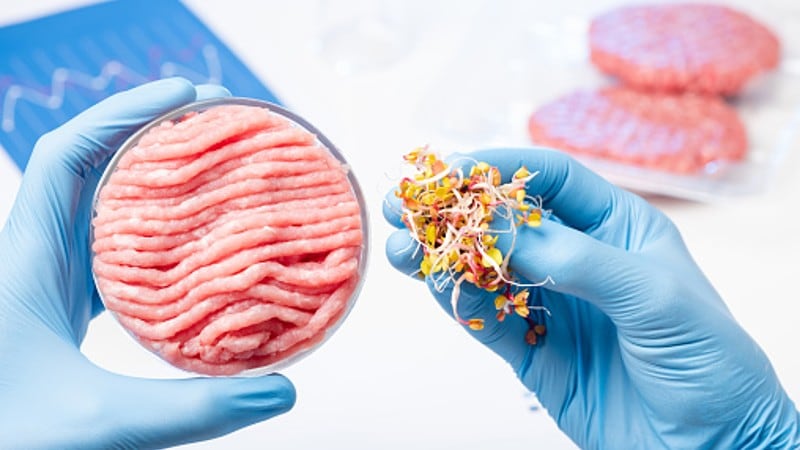Megan Lee, a researcher in nutritional psychiatry at Bond University, said the findings were significant given the increasing popularity of vegan and vegetarian lifestyles and the proliferation of packaged foods targeting those markets.
Many of the products are high in refined vegetable oils and refined grains, salt and sugar, she said.
“There is a general perception that following a plant-based diet is inherently healthy but like any diet it comes down to what you put in your mouth,” said Dr Lee, the lead author of the study.
“Vegans and vegetarians are not automatically eating heaps of fruit and veg because there are all these products out there that are fully processed, fully refined.
“People may inadvertently be consuming high levels of processed plant foods which is a known risk factor for increased depression.”
For the study, researchers examined the diet quality and mental health of 219 vegans and vegetarians in Australia.
The participants were asked to complete questionnaires based on recognised measures of diet quality and depression.
Those with diets high in fresh fruit, vegetables, nuts, seeds, legumes and whole grains were found to be at lower risk of depression compared to fellow vegans and vegetarians with low quality diets.
Dr Lee said the protective effect of a high-quality plant-based diet was likely due to the presence of complex carbohydrates, fibre, probiotics and antioxidants which have all been found to decrease symptoms of depression.
Not a cure
But she said the research indicated switching to a high-quality plant-based diet was not a “cure” for those already experiencing depression.
“It seems to have more a protective role,” she said. “Our research did not find that a plant-based diet was a treatment or fix for those who were already depressed.”
Vegans and vegetarians are already more vulnerable to depression than the general population.
Dr Lee said this could be due to their outlook on life and that they are generally a younger cohort which is already more susceptible to mental health issues.
“We think this (susceptibility to depression) might be because vegans and vegetarians tend to be more conscious about external issues - animal welfare, environmental concerns - and they can be ostracised socially because of their choice of diet.”
Participants in the study were aged 18-44 which closely corresponds with the 15-44 age group for which suicide is the leading cause of death in Australia. Almost 14 per cent of people in this age group report experiencing symptoms of depression.
The study reported: The current study shows that following a plant-based diet does not necessarily mean the individual consumes a ‘healthy’ dietary pattern.
“This finding is an important extension of the literature that has predominately compared diet type instead of dietary quality. As with other dietary patterns such as low-quality meat-based diets, low-quality Mediterranean dietary patterns and low-quality Ketogenic dietary patterns, this study highlights that there are also low-quality plant-based diets.
“These include plant-based products that are high in ultra-processed ingredients, refined vegetable oils, fried food, salt, refined grains, alcohol, sugary snacks and drinks. The consumer distinction between low and high-quality plant-based foods is important given that based on 2020 data, the expanding value of packaged vegan food in Australia is projected to reach approximately $A215million.
“Consequently, individuals may inadvertently be consuming a diet high in processed plant foods consistent with a low diet quality, which is broadly a known risk factor for increased depression.”
More than 2.5 million Australians have chosen to go meat-free – about 12 per cent of the total population.
Source: BMJ Nutrition, Prevention and Health
“Plant-based dietary quality and depressive symptoms in Australian vegans and vegetarians: a crosssectional study”
doi:10.1136/bmjnph-2021-000332
Authors: Megan Frances Lee, et al



